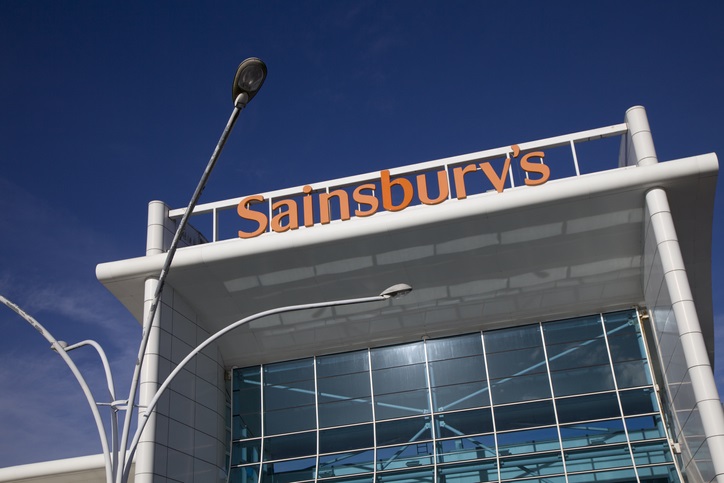Drastic Sainsbury’s reforms stave off losses
Supermarket group announces job cuts and online drive as it fends off the pandemic blow.
5th November 2020 12:40
by Richard Hunter from interactive investor
Supermarket group announces job cuts and an online drive as it fends off the worst of the the pandemic blow.

The pandemic has forced many boardrooms to tear up multi-year strategic plans and accelerate their pace of change to previously unseen levels.
J Sainsbury (LSE:SBRY), owner of Sainsbury’s supermarkets, is the latest to announce a set of sweeping reforms in its third quarter interim results.
These include cutting 3,500 jobs, the ramping up of its online capability, an extension to its convenience store format in the shape of the ‘Neighbourhood Hub’ and an overhaul of its Argos store estate.
The latter will eventually result in an Argos presence in each supermarket and will leave just 100 standalone stores, reflecting the recent experience where 90% of sales were made online during the height of lockdown as stores were temporarily closed.
- The Week Ahead: US election, M&S, Sainsbury’s
- ii view: Tesco shares are generating interest
- Sainsbury’s Q1 sales boom justifies share price rally
At the same time, the group is looking further to promote its Habitat and Nectar brands, while remaining committed to Sainsbury’s Bank over the medium term despite the challenges of the pandemic making consumers hunker down and as the possibility of bad debt increases.
From a wider perspective, Sainsbury also plans to release an extra £600 million per year by 2024 through a combination of cost savings and restructuring to enable further investment into the business.
In the meantime, the better than expected trading result and balance sheet strength has not only seen a payment of the interim dividend but a special dividend in lieu of the one passed at the full-year numbers
Quite apart from this being a signal of management confidence in prospects, as a one-off this implies a yield of approaching 5% which is a boon to income-starved investors in the current environment.
Of course, these sweeping plans come at a cost, and the £438 million booked for this period has resulted in an overall loss of £137 million. The pandemic has also had an effect, with associated costs of £290 million being only partially offset by business rates relief of £230 million.
The underlying trading figures are generally strong and reflect Sainsbury’s ability to move quickly, particularly with its online offering, in meeting additional demand.
Digital sales over the period increased by 117% to £5.8 billion, which now represents 40% of the group total. The current fulfilment of 700 000 orders per week is expected to increase to 760,000 by year-end.
- Stockwatch: what to do with Shell and Sainsbury’s shares
- Take control of your retirement planning with our award-winning, low-cost Self-Invested Personal Pension (SIPP)
Meanwhile, grocery sales grew by 8.2% and General Merchandise by 7.4%, with pandemic-related changes in customer buying patterns resulting in declines for fuel of 44.6% and for clothing of 18.3%.
The outlook is not plain sailing, particularly given the fiercely competitive arena in which Sainsbury operates, and where competitors are also making large strides in terms of tempting consumers sometimes simply based on price.
This will put further pressure on margins, quite apart from the transformation programme which the group has chosen to pursue.
The more recent share price performance has held up well given the economic backdrop, and has risen by 8% in the last six months, although remaining down by 9% in 2020.
Over the last year, a marginal gain of 1% compares to a decline of 20% for the wider FTSE 100. The strides which Sainsbury has made, allied to its prospects for future growth, has resulted in an improvement to the market consensus, which has recently moved to a ‘buy’.
Full performance can be found on the company or index summary page on the interactive investor website. Simply click on the company's or index name highlighted in the article.
These articles are provided for information purposes only. Occasionally, an opinion about whether to buy or sell a specific investment may be provided by third parties. The content is not intended to be a personal recommendation to buy or sell any financial instrument or product, or to adopt any investment strategy as it is not provided based on an assessment of your investing knowledge and experience, your financial situation or your investment objectives. The value of your investments, and the income derived from them, may go down as well as up. You may not get back all the money that you invest. The investments referred to in this article may not be suitable for all investors, and if in doubt, an investor should seek advice from a qualified investment adviser.
Full performance can be found on the company or index summary page on the interactive investor website. Simply click on the company's or index name highlighted in the article.